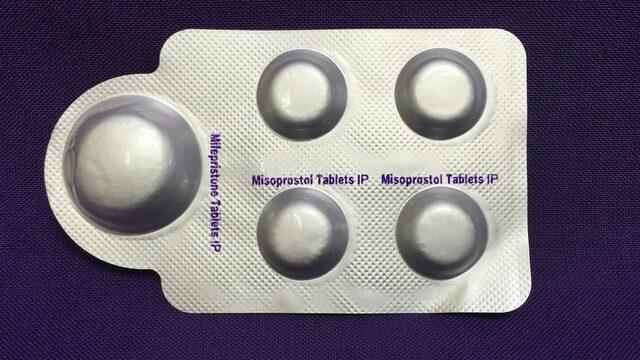Missy is just one of nearly 90 million women living in countries where abortion is prohibited.
Missy, who lives in the Philippines, turned to the internet when she could not afford to buy abortion pills on the black market. However, she has encountered a lot of misinformation, including useless homemade cures and contraband drugs.
Searching Google and Facebook groups, the woman decided to try various methods, such as placing guava leaves in her vagina, drinking strong coffee or using aloe vera extract, following the recommendations here.
Missy tried these methods, which have no scientific evidence about their effectiveness or reliability, at home for a week, but to no avail. Moreover, these methods caused stomach complaints and headaches.
Myths about home treatment
According to the research of the Center for Combating Digital Hate (CCDH), covering 48 countries, the Google search engine “How to abort a child?” When you type the question, the site’s auto-complete feature will bring you home treatment methods such as “raw egg” and “salt water”, the effectiveness of which has not been scientifically proven.
Google states that it cannot detect all such potentially harmful recommendations in their systems, but that these contents can be reviewed and removed when detected.
These automatic search predictions for abortion-related searches appear to women in many countries, including South Africa, Kenya, India, the Philippines, Poland, Ukraine, Australia, the United Kingdom and the United States.
Trusted ads are blocked
On the other hand, some institutions that want to share accurate and scientific information on this subject and offer abortion services on the Internet, in a statement to the BBC, stated that their content was blocked without any explanation:
- MSI Reproductive Choices (formerly Marie Stopes), one of the world’s largest international non-governmental organizations in the field of birth control and safe abortion services, announced that their YouTube channels were temporarily closed for weeks, and their ads to Google and Facebook were blocked many times. Both Google and the YouTube platform it owns stated that this was a mistake and the channel was reopened to users.
- The International Federation of Family Planning (IPPF), which is represented in more than 146 countries, noted that almost half of its ads to Facebook and Google were rejected.
- Different institutions and organizations that aim to facilitate access to abortion drugs, such as Women on Web, which work in 200 countries, also shared evidence that their ads and accounts were blocked on many platforms.
While Google emphasizes that it has clear policies regarding such ads, some of which are determined by local laws and control mechanisms, Facebook points out that they have reactivated some of the ads that were blocked by error.
The company also emphasizes that the ads that appear at the top of the search lists are determined by the advertising fees paid to them, as well as criteria such as “general quality” and “suitability”.
On the other hand, MSI South Africa official Whitney Chinogwenya says that abortion clinics find themselves in competition with black market drug sites or anti-abortion clinics in order to advertise, which causes budget problems.
He adds that the ads of sites selling these fake abortion pills get ahead of them in Google searches.
False information in Facebook groups
Many women like Missy seek help with miscarriage and come across advice on unapproved medications or homemade cures on online forums, MSI reports.
The BBC also observed that in some Facebook groups she examined, women desperately tried home remedies and when these did not work, they wrote back to the site a few days later, and some women went after such abortion drugs.
Mara Clarke, the founder of the Northern Ireland-based Abortion Support Network (Abortion Support Network), states that some drugs with proven efficacy can sometimes be used in the wrong dose and in the wrong order, says that drugs such as Misoprostol, which is used in medicine to terminate pregnancy, can be the only remedy for women.
In order for Misoprostol to be effective, it must be taken together with the drug with the active ingredient mifepristone, at the dose recommended by the doctors, and many women may not follow these recommendations.
Clarke points out that sometimes fake sites that claim to sell these drugs don’t “steal money” from women and then don’t send them.
Those who apply to these sites and forums are not just those living in countries where abortion is illegal. This is also common in countries like South Africa where advertisements for abortion pills and abortion are legal because abortion is still not accepted in society.
“When you look at these facilities that are supposed to provide abortion services, you see that not only access to abortion is problematic, but access to information about abortion is problematic,” says MSI’s Chinogwenya.

Other misleading abortion advice
Myths about reproductive health have been floating around the internet for a long time.
According to Abigal Sambo, a volunteer who teaches sexual health to youth in Zambia for the organization Youth Development, there are women who insert cassava leaves into their vaginas for abortions, as well as those who seek help from boiled Coca-Cola.
Many young women who do not have regular access to the Internet seek advice from their grandmothers or people around them.
On the other hand, the difference of the internet is that it is necessary to give paid advertisements in order to spread the information quickly and reach women.
According to some experts, this discussion about abortion reveals that tech companies deciding what information can be shared on their platforms can be as harmful as helpful.
